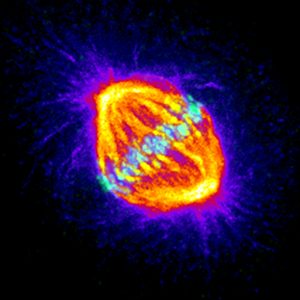 Disease like cancer, asthma and certain congenital malformations remain stubbornly resistant to traditional medical approaches. An understanding of the biomechanics of how cells and tissue interact with each other and with the environment are an emerging frontier for new approaches for controlling disease and understanding how congenital disease emerges during development.
Disease like cancer, asthma and certain congenital malformations remain stubbornly resistant to traditional medical approaches. An understanding of the biomechanics of how cells and tissue interact with each other and with the environment are an emerging frontier for new approaches for controlling disease and understanding how congenital disease emerges during development.
BioInspired at Syracuse University brings together world leaders in modeling mechanics of living tissues and have expertise in specific model systems that can help provide proof of concept for new approaches to understanding and treating disease and developmental anomalies. Areas of expertise include:
- Cell/Tissue Mechanics and Patterning
- Subcellular Sensing and Organization of the cytoskeleton
- Bacteria-Material Interactions
- Brain Development
- Cell-Material Interactions
- Biofilms and Mechanisms of Antibiotic Resistance
- Experimental Active Matter
Our goal is to develop complementary expertise in the following areas:
- Optical Imaging and Force Sensors: understanding how molecular-scale forces impact development and disease.
- Mechanobiology: designing biomaterials that regulate cells or develop new micron-scale mechanical devices that can influence the behavior of biochemical signaling pathways that underlie many diseases.
- Experimental Cellular Biophysics: applying leading-edge techniques to quantify the mechanical behavior of cells or groups of cells in the laboratory and in developing organisms.
- Brain Organoid: understanding the structure and organization of the brain, how it develops and what goes wrong to cause disease or developmental disorders.
